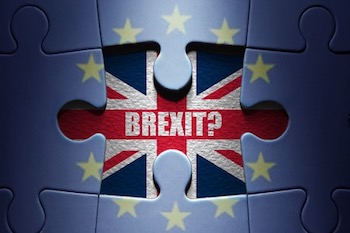 As is being widely reported in the general press, the UK has voted to exit the European Union. There are many questions about what this decision means to the global economy, but for the intellectual property systems at least, we see no significant changes in the short term.
As is being widely reported in the general press, the UK has voted to exit the European Union. There are many questions about what this decision means to the global economy, but for the intellectual property systems at least, we see no significant changes in the short term.
Change will be slow – the details of the UK’s exit from the European Union will be negotiated over at least the next two years, and likely over the next decade. Moreover, there is no reason to expect that those negotiations will impact the current patent systems. The UK’s participation in the European Patent Convention, and use of the European Patent Office as a vehicle to obtain patent rights in the UK, is not directly affected by this vote because the European Patent Office is not a body of the European Union.
For other types of IP rights, it is likely that, during the period of negotiation of the UK exit, transition provisions will be implemented, if necessary, as UK laws and regulations replace any EU provisions that impacted rights in the UK. Nothing is expected to change on the trademark side for at least two years. Likely, transition provisions will be implemented to grandfather EU trademark registrations into the UK or there will be some opportunity to extend EU rights into national rights in the UK. We will continue to monitor these developments.
Longer term, as the impacts of Brexit work their way through the economy, other adjustments may be warranted. There may be a greater or lesser value to IP rights in the UK or Europe. The value of an anticipated Unitary Patent, for example, is likely to be diminished and companies waiting for the long-promised Unified Patent Court may have to wait even longer as the remaining members of the European Union reformulate a plan for moving ahead without the UK. Even now, businesses entering into long-term contracts that involve IP rights in the UK or Europe should consider whether any contractual terms adequately reflect the consequences of a greater separation between the UK and other countries in Europe.
Change may drive a need to reassess international IP strategies. IP is most valuable when it can be enforced in a jurisdiction where competitors make and sell products or where those products are used. The Brexit stock market crash points to a strong concern about shifting economic activity throughout Europe – which could shift the jurisdictions in which products are made, used or sold. Some proponents of Brexit have speculated that even greater change is looming as other countries now in the EU follow the UK’s lead. While the underlying IP laws are likely to be familiar when the dust of Brexit settles, the economics that drive choices about acquiring, licensing and enforcing IP rights may be different.
Recent events do not foreshadow major upheaval in the IP world, and might be better viewed as a reminder that IP strategies should be updated frequently to align with global economic conditions.

![[IPWatchdog Logo]](https://ipwatchdog.com/wp-content/themes/IPWatchdog%20-%202023/assets/images/temp/logo-small@2x.png)

![[Advertisement]](https://ipwatchdog.com/wp-content/uploads/2024/04/Patent-Litigation-Masters-2024-sidebar-early-bird-ends-Apr-21-last-chance-700x500-1.jpg)

![[Advertisement]](https://ipwatchdog.com/wp-content/uploads/2021/12/WEBINAR-336-x-280-px.png)
![[Advertisement]](https://ipwatchdog.com/wp-content/uploads/2021/12/2021-Patent-Practice-on-Demand-recorded-Feb-2021-336-x-280.jpg)
![[Advertisement]](https://ipwatchdog.com/wp-content/uploads/2021/12/Ad-4-The-Invent-Patent-System™.png)







Join the Discussion
No comments yet.